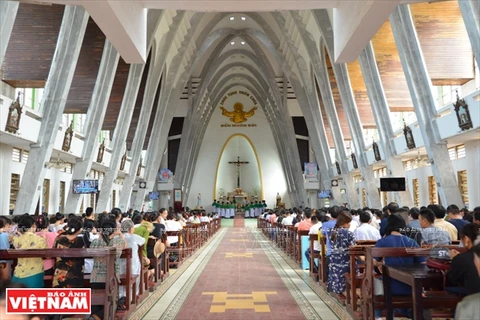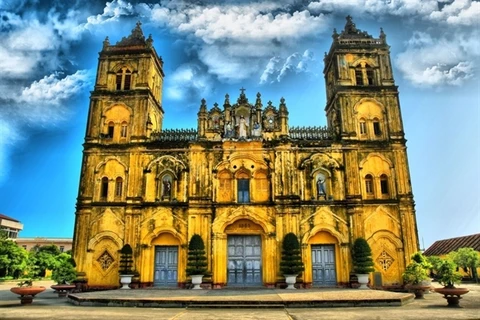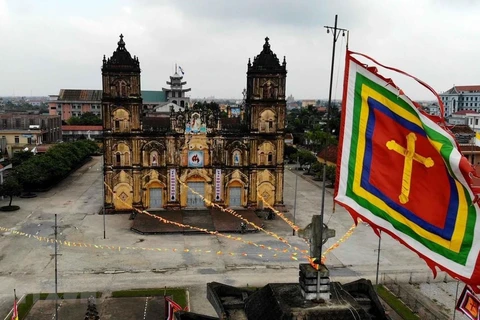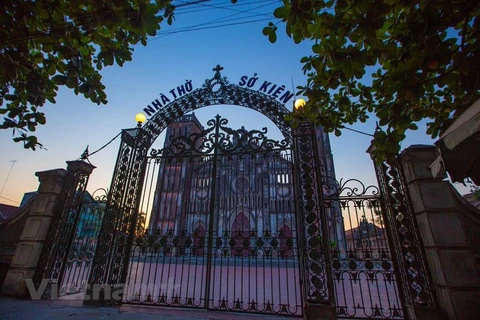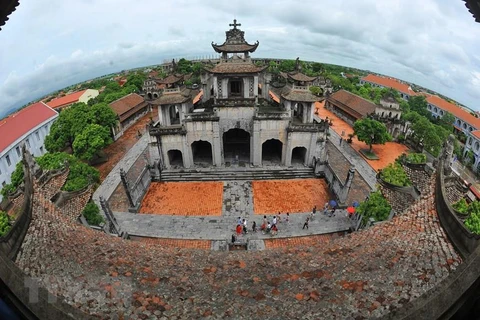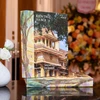HCM City (VNS/VNA) - The Thu Thiem Catholic Church complex will be preserved as a national relic under the Cultural Heritage Law, an official said at a meeting in Ho Chi Minh City on November 12.
The complex, which includes a number of buildings, will be protected in accordance with the 2001 Cultural Heritage Law and other related legal documents, according to Huynh Thanh Nhan, Director of the municipal Department of Culture and Sports.
Speaking at the meeting on historic preservation held by the municipal People’s Council, Nhan said the decision would affect the city’s planning of the Thu Thiem new urban area project in District 2 since the complex is located within the area.
Previously, the city government had planned to clear all of these works to build a functional area in the new urban area, but decided to preserve them in early February. But it did not issue a detailed plan at that time.
The department said it would submit documents to the municipal People’ Committee next month. The ranking of the complex of buildings as national relics aims to preserve and promote the architectural, cultural and historic value of the works, according to Nhan.
Located on the banks of the Sai Gon River next to the city centre, the Thu Thiem Catholic church was built in 1859, one of the oldest parishes of the HCM City Archdiocese.
The Thu Thiem Congregation of the Lovers of the Holy Cross, which includes a monastery and other buildings, was established in 1840 and has been expanding in the Thu Thiem area since it was an isolated area on the side of the river with only a few small houses.
Since the foundation of the church, the Sisters of the Lovers of the Holy Cross have transformed the tropical area into homes, schools and farms from which they earned a living and supported the poor of the area.
For the past 20 years, the city government has been carrying out a master plan for the Thu Thiem new urban area which covers 657ha, with nearly 30 percent of land lots being developed for commercial purposes.
Other areas in the new urban area are for public services, including a central square, riverside park and children’s palace.
Approved by the Government in 1996, the proposed financial district and mixed-use urban area was expected to become the largest inner-city development in Southeast Asia.
To develop such a project, it has taken more than 10 years to complete site clearance on Thu Thiem peninsula, with nearly 15,000 households already resettled. More than 99 percent of land in the proposed area has been cleared.
Besides the church, the preservation of old villas in the city was also addressed at the meeting. The HCM City Development and Research Institute has proposed preserving 16 villas built before 1975 because of their historical and cultural importance.
HCM City has nearly 900 villas built before 1975, mostly located in districts 1, 3, 5 and Thủ Đức, which have been recommended for official classification by owners and authorities.
Valuable old buildings, mostly built during the French colonial period, include the HCM City People’s Court (built in 1881), King’s Palace or Revolutionary Museum (1885), Majestic Hotel and Notre Dame Cathedral (1887), Sai Gon Post Office (1886-1891), HCM City People's Committee Head Office (1907), Opera House (1900), and Ben Thanh Market (1912-1914)./.
VNA

